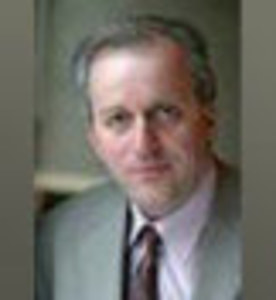Twenty-five years ago today, Quebec politics changed forever. René Lévesque's Parti Québecois formed the first Quebec government whose whose very raison d'être was Quebec sovereignty.
But a quarter of a century later, sovereignists do not have a lot to cheer about because their objective seems more elusive than ever. As the Parti Québécois celebrates the anniversary, its leadership might want to emulate their founder by describing the Canadian federation as a "beau risque."
Although such a shift would be a difficult one for Premier Bernard Landry, it might be warranted for the following reasons:
- There has been a decline in support for sovereignty to the level it held when the PQ was first elected (even the often- heard PQ contention that a majority of francophones, as opposed to all Quebecers, favour sovereignty is no longer borne out by recent surveys).
- Polls show that Quebecers have little appetite for another referendum (indeed a significant number never want one again).
- A majority of Quebecers recently declared that sovereignty is an idea whose time has passed.
- The PQ is well behind the provincial Liberals among the electorate and if the trend holds, the PQ will be out of power by 2003. A PQ loss in the next provincial election would set back the pursuit of sovereignty at least another decade, thus spoiling Landry's dream that Quebec will sit with the "other" nations at the next Summit of the Americas in 2005.
- The domination of federalists in the recent municipal elections in both the Montreal megacity and the new South Shore merged city of Longeuil makes the achievement of sovereignty more problematic.
Contrary to conventional PQ wisdom, the more talk there is about sovereignty, the less popular the option becomes. This is true in part because the rationale for a breakup with Canada seems less apparent to today's Quebecers.
In 1976, the PQ justified Quebec sovereignty by focusing on the vulnerability of the French language and the inferior economic position of francophones. At that time, the PQ proposed a socially democratic independent state to rectify these inequities. Twenty-five years later, the reality has changed: social democracy has long since given way to economic and social practices similar to what has taken place in the rest of Canada. As to the French language in Quebec, most demographers agree that its position is stronger than ever. And, over those 25 years, francophones have made very important economic gains. All this has occurred while Quebec has remained part of Canada.
Conferences, forums and reflection groups have been held in recent years with the objective of redefining and thus reviving the sovereignty option. Suggesting that Canada model itself on the European Union and constantly reaffirming that Quebec is a nation seem to be the current trend among the PQ leadership. There is also talk of creating a Quebec citizenship to promote greater identification with Quebec, notably among non-francophones (until now to be a Quebecer, it was enough to reside here and pay your taxes). All these measures have done little to alter public opinion after 25 years. Today, neither inapplicable models nor changes in terminology appear likely to turn things around for advocates of Quebec sovereignty.
What effect all this will have on the short-term political strategies of the PQ is difficult to evaluate. No doubt many sovereignists will agree that it is eminently preferable to lose the next provincial election rather than to compromise the sovereignty option. Others in the party consider political power as the ultimate aim.
Regardless of what strategy it adopts, there is little chance that the PQ can acknowledge that its long-held option of Quebec sovereignty is, both politically and intellectually, in a state of severe crisis. Such recognition would risk throwing the party into chaos. What must be acknowledged, however, is that neither the Parti Québécois nor the sovereignty movement can be described as a success if they are to be evaluated by their current standing as compared with where things stood 25 years ago today.
***
JACK JEDWAB
Jack Jedwab teaches at the McGill Institute for the Study of Canada.
rappel
















Laissez un commentaire Votre adresse courriel ne sera pas publiée.
Veuillez vous connecter afin de laisser un commentaire.
Aucun commentaire trouvé